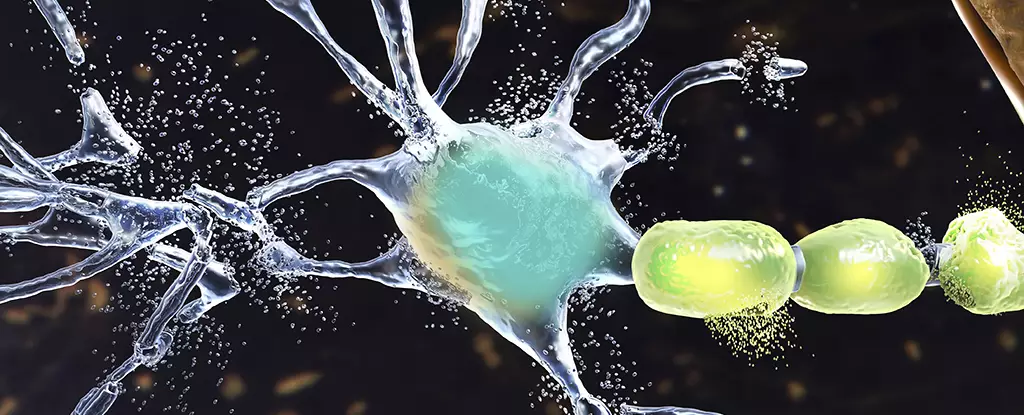Amyotrophic lateral sclerosis (ALS), commonly known as Lou Gehrig’s disease, is a devastating neurodegenerative disorder that remains a mystery in terms of its origin and effective treatment options. The gradual loss of nerve cells that control muscle movements leads to rapid progression and ultimately, a terminal outcome for patients. However, a recent study has shed light on a potential link between ALS and the accumulation of ‘junk’ proteins, providing a new perspective for scientists in their quest to understand this debilitating condition.
Researchers from the Spanish National Cancer Research Center (CNIO) have made significant strides in unraveling the complex relationship between nucleolar stress, toxic peptides, and cellular damage in ALS. By studying cell cultures and mouse cells, the team identified a connection between the accumulation of non-functional proteins rich in a specific amino acid and stress within the nucleolus, a cell organelle. This stress induced toxicity in animal cells and accelerated aging, offering valuable insights into the underlying mechanisms of ALS.
The findings of this study have far-reaching implications for the future treatment of ALS and related neurodegenerative disorders. The researchers discovered that the disruption in protein synthesis, caused by an abundance of toxic peptides, led to the accumulation of junk proteins within the cells. This accumulation, in turn, compromised crucial cellular functions and eventually resulted in the death of motor neurons. By understanding this process, scientists hope to develop targeted therapies that can address the root causes of ALS and improve patient outcomes.
While this research marks a significant step forward in the field of ALS research, there is still much work to be done. The connections between nucleolar stress, junk proteins, and cellular damage have only recently been uncovered, opening up a myriad of possibilities for future studies and therapeutic interventions. By further exploring the link between accelerated biological aging and neurodegenerative disorders, researchers may be able to develop novel treatment strategies that target the underlying mechanisms of these conditions.
The discovery of a link between junk proteins and ALS represents a groundbreaking advancement in our understanding of this complex disease. By elucidating the role of nucleolar stress and toxic peptides in cellular damage, researchers have paved the way for new avenues of research and potential treatment options for patients with ALS. As we continue to probe the intricacies of neurodegenerative disorders, the insights gained from this study may hold the key to unlocking effective therapies and ultimately improving the lives of those affected by ALS.



Leave a Reply